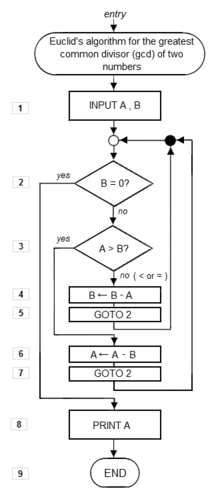Evolutionary psychologists tend to view the mind as a kind of computer that runs algorithms that help us make decisions based on sensory input from the environment and an internal assessment of our physiological condition. These are called tradeoffs and we make them all the time. For example, do you continue safely in a job you hate, even though it gives you security? Or do you quit and pursue your dream to be a Hollywood actor with a massive payoff if you succeed - but the poverty line if you don't. I am being a bit facetious here, of course. But time/resources/energy/risk tolerance are all factors in decisions that have been made by our ancestor's since human history began.
Hunter-gathers make tradeoffs in terms of how much time they will give to hunting, to spending time with family, to forming social alliances...(sound familiar) and the mind has evolved to allow us to compute these things. In modern day life businessmen do the same, allocating company funds for investing in research and development, marketing etc. Indeed, capitalism is all about employing algorithms to maximise financial surplus.
But what has all of this to do with psychology? Well, if the human mind is a sort of computer that uses its own form of algorithms to make decisions then 'normal' behaviour can be defined by how well those calculations suit the circumstances in which they are employed. 'Stupid' behaviour fits within a normal range, and after a few glasses of wine we are often apt to make decision we regret because we do not properly take in all the information or consider all the angles or give equal weight to various considerations. But even daft decisions can be intelligible in the context they are made, so that we might forgive someone who offers the excuse, 'But I was really drunk at the time!'
So, what about 'insane' behaviour? Well, this would mean that a decision someone made or an act they performed would be hard to fathom. No rational basis might be discerned for it. Indeed, the action may be one that seems totally ill-suited to the context in which it occurs or is one where the algorithm used may be an inversion of one which would normally serve survival. For example, what if someone was making business decisions that maximised expenditure and minimised profit margins as much as possible? Or what if someone decided to use time as inefficiently as possible to achieve an objective that could be achieved much faster? Well, you might argue these people were aiming for these purposes - perhaps trying to ruin the company or dragging their heels to procrastinate and put off doing something that they wished to avoid. Fair enough. But what if this algorithm of inefficiency were applied to all their actions?
It is interesting to view all behaviours, including ones which are in the realm of abnormal psychology, as algorithms gone wrong. Hair pulling, for example, is a kind of hunting for lipid fat roots whereby the puller aims to maximise the fat gained by selecting the most profitable hairs. Viewed this way hair pulling constitutes an algorithm normally applied to resource finding but which is being misapplied to the body. One reason this might occur is because the individual finds itself in an unstable or unpredictable environment and to combat this the mind rechannels an algorithm that is normally directed towards the world towards the body instead. And after this calm can be achieved because a reward can be reliably obtained from specific manipulations, i.e. control is restored.
By viewing abnormal behaviours in terms of the reward versus time/energy consumed/context applied to, it may be possible to view abnormality in terms of mental calculations which have gone awry in some way. This may mean they are compensating for environmental instability in which no clear and reliable optimal strategy for obtaining resources or social attachments can be identified.
Unless someone intercedes and helps supply new environmental information that changes a person's perspective on their world, or provides cognitive support so that an adaptive application of the algorithm can be found, the problems may persist.
By viewing abnormal behaviours in terms of the reward versus time/energy consumed/context applied to, it may be possible to view abnormality in terms of mental calculations which have gone awry in some way. This may mean they are compensating for environmental instability in which no clear and reliable optimal strategy for obtaining resources or social attachments can be identified.
Unless someone intercedes and helps supply new environmental information that changes a person's perspective on their world, or provides cognitive support so that an adaptive application of the algorithm can be found, the problems may persist.

No comments:
Post a Comment
Please leave your comment below: